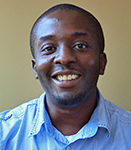
A Student’s View: Task Shifting Holds Potential for Addressing Health Worker Shortages and Expanding Access to Health Care
 The concept of task shifting is not a new one. In 19th century France, officiers de santé were an officially recognized and commonly-used class of non-physician health workers, while in China, so-called barefoot doctors were widely deployed across the country in the mid-20th century. And in Africa, non-physician clinicians have long been trained across the continent to fill various roles. Succinctly put, task shifting is a process of delegating tasks from higher-level health workers to less specialized health workers with shorter training and fewer qualifications.
The concept of task shifting is not a new one. In 19th century France, officiers de santé were an officially recognized and commonly-used class of non-physician health workers, while in China, so-called barefoot doctors were widely deployed across the country in the mid-20th century. And in Africa, non-physician clinicians have long been trained across the continent to fill various roles. Succinctly put, task shifting is a process of delegating tasks from higher-level health workers to less specialized health workers with shorter training and fewer qualifications.
As a graduate student at the University of North Carolina, I was first drawn to the idea of task shifting during my summer practicum with CapacityPlus. I had the opportunity of evaluating two “training of tutors” courses conducted in Nigeria. The courses are designed to improve and update the knowledge of tutors from various health worker training institutions. This is one of the strategies developed by CapacityPlus to strengthen the capacity of training institutions to produce more high-quality graduates with the overarching goal of addressing critical shortages in the health workforce. The World Health Organization has identified a critical threshold in health workforce density below which a country will be unable to provide high coverage of essential interventions, including those necessary to meet the health-related Millennium Development Goals (MDGs). This critical threshold translates to a minimum of 23 doctors, nurses, and midwives per 10,000 population. Thirty-six countries in sub-Saharan Africa, including Nigeria, fall short of this threshold.
Inspired by what I had learned during my internship, I decided to focus my master’s paper on addressing health workforce shortages in sub-Saharan Africa through task shifting. While writing it, I reviewed peer-reviewed literature on task shifting in different contexts of specific sub-Saharan African countries (Botswana, Ethiopia, Lesotho, Madagascar, Malawi, Mozambique, Rwanda, South Africa, Tanzania, and Uganda). The literature studied the application of task shifting in family planning through community-based distribution of injectable contraceptives; emergency obstetric surgeries; and initiation of antiretroviral therapy and follow-up care in HIV patients. Despite the different contexts in which task shifting was applied, the findings from all studies showed that the quality of care was not compromised when compared to physician-administered care. In fact, in some instances, the quality of care was better. I also observed that task shifting increased access to health care services especially among underserved populations; is acceptable among populations being served; and addresses shortages in health worker constrained countries of sub-Saharan Africa.
I believe that task shifting, if applied judiciously, can serve as a beneficial health-delivery asset and not just a quick-fix solution to a workforce crisis. The approach has the potential to positively contribute to strengthening health systems overall. However, for task shifting to prove an effective strategy, it must be adapted based on country context and specific tasks, including critical oversight. It is also necessary to establish formal recognition and acceptance of task shifting among physician professional societies that may perceive it as a replacement system rather than a health-support practice. This I think can be achieved through coordination and consultation from the outset with key regulatory bodies as well as with relevant government ministries.
Obinna Okeke is a physician from Nigeria who is currently earning his master’s degree in public health at the University of North Carolina, Chapel Hill. From May to August 2013 he served as a CapacityPlus intern, and then worked as a temporary technical assistant for CapacityPlus until January 2014. If you would like a copy of his master’s paper, he can be reached at obinnajudeokeke@gmail.com.
Help CapacityPlus spread the word about strengthening the health workforce. Follow us on Twitter and like us on Facebook.
Related items:
Photo by Sarah Dwyer


